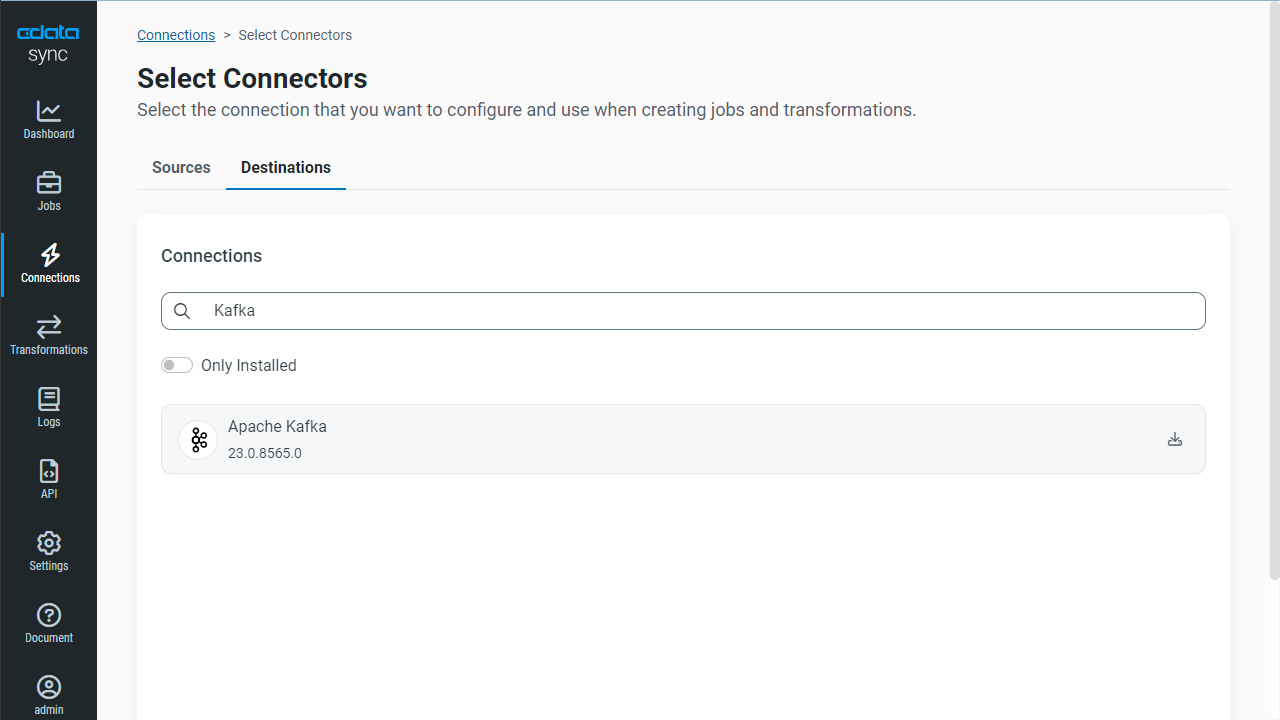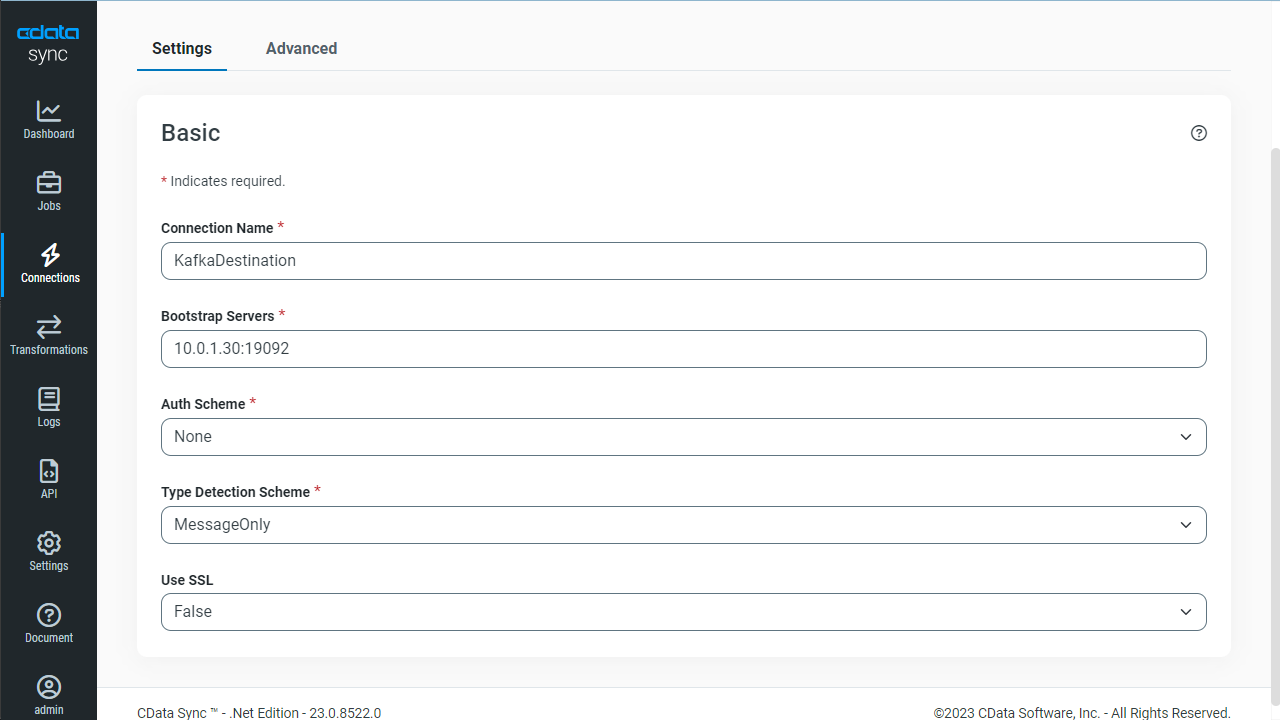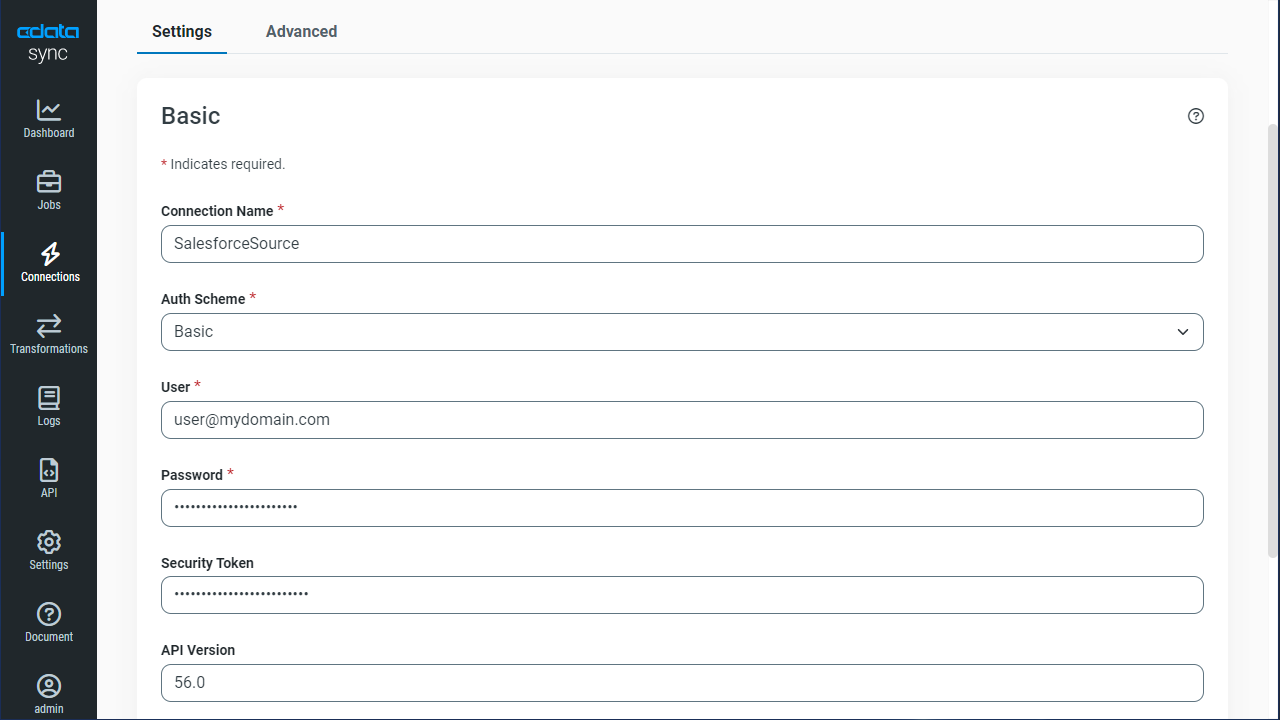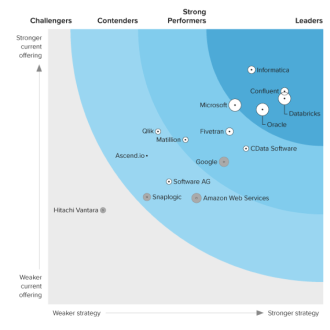Discover how a bimodal integration strategy can address the major data management challenges facing your organization today.
Get the Report →Automated Continuous Salesforce Replication to Apache Kafka
Use CData Sync for automated, continuous, customizable Salesforce replication to Apache Kafka.
Always-on applications rely on automatic failover capabilities and real-time data access. CData Sync integrates live Salesforce data into your Apache Kafka instance, allowing you to consolidate all of your data into a single location for archiving, reporting, analytics, machine learning, artificial intelligence and more.
Configure Apache Kafka as a Replication Destination
Using CData Sync, you can replicate Salesforce data to Kafka. To add a replication destination, navigate to the Connections tab.
- Click Add Connection.
- Select Apache Kafka as a destination.
![Configure a Destination connection to Kafka.]()
- Enter the necessary connection properties:
- Bootstrap Servers - Enter the address of the Apache Kafka Bootstrap servers to which you want to connect.
- Auth Scheme - Select the authentication scheme. Plain is the default setting. For this setting, specify your login credentials:
- User - Enter the username that you use to authenticate to Apache Kafka.
- Password - Enter the password that you use to authenticate to Apache Kafka.
- Type Detection Scheme - Specify the detection-scheme type (None, RowScan, SchemaRegistry, or MessageOnly) that you want to use. The default type is None.
- Use SSL - Specify whether you want to use the Secure Sockets Layer (SSL) protocol. The default value is False.
- Click Test Connection to ensure that the connection is configured properly.
![Configure a Destination connection.]()
- Click Save Changes.
Configure the Salesforce Connection
You can configure a connection to Salesforce from the Connections tab. To add a connection to your Salesforce account, navigate to the Connections tab.
- Click Add Connection.
- Select a source (Salesforce).
- Configure the connection properties.
There are several authentication methods available for connecting to Salesforce: Login, OAuth, and SSO. The Login method requires you to have the username, password, and security token of the user.
If you do not have access to the username and password or do not wish to require them, you can use OAuth authentication.
SSO (single sign-on) can be used by setting the SSOProperties, SSOLoginUrl, and TokenUrl connection properties, which allow you to authenticate to an identity provider. See the "Getting Started" chapter in the help documentation for more information.
![Configure a Source connection (Salesforce is shown).]()
- Click Connect to ensure that the connection is configured properly.
- Click Save Changes.
Configure Replication Queries
CData Sync enables you to control replication with a point-and-click interface and with SQL queries. For each replication you wish to configure, navigate to the Jobs tab and click Add Job. Select the Source and Destination for your replication.
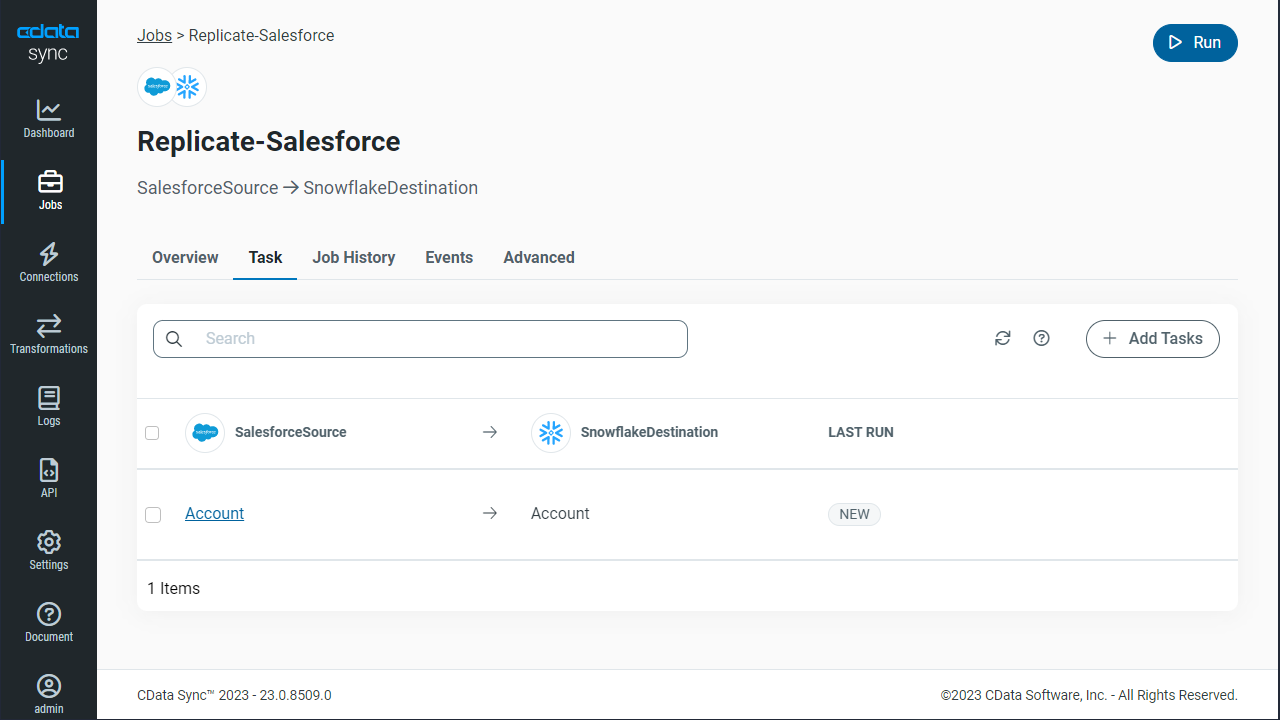
Replicate Entire Tables
To replicate an entire table, click Add Tables in the Tables section, choose the table(s) you wish to replicate, and click Add Selected Tables.
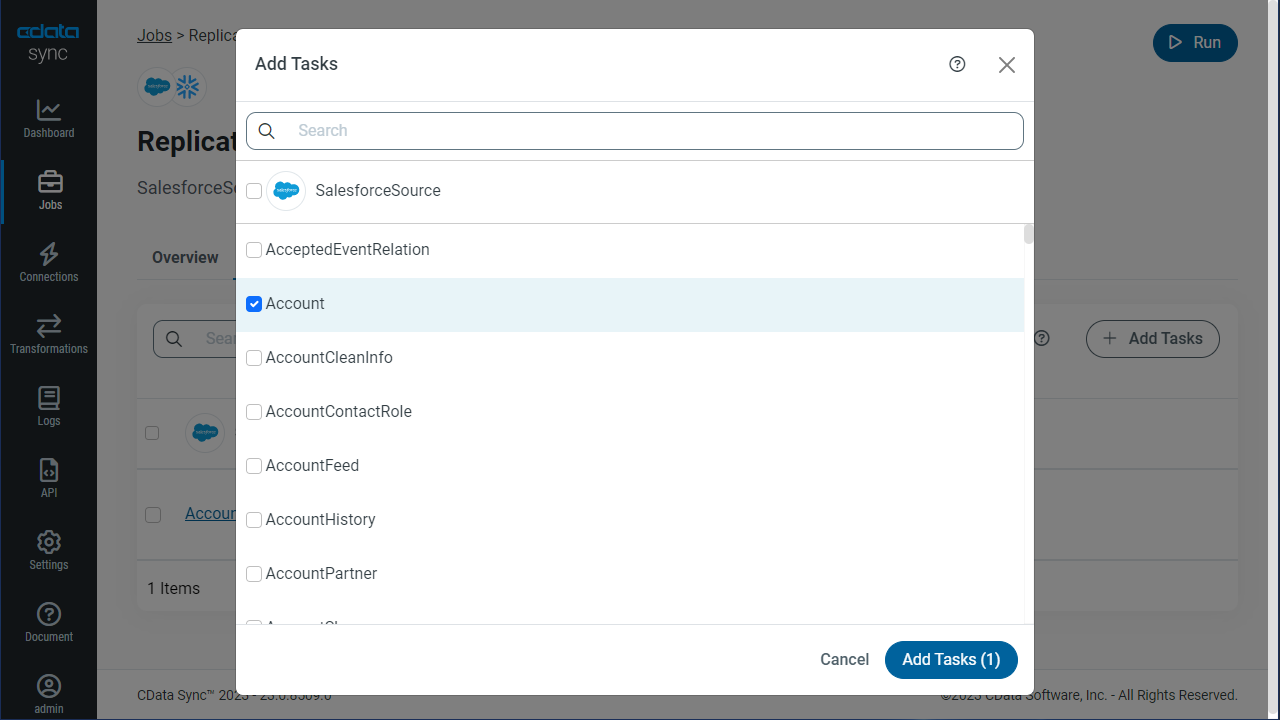
Customize Your Replication
You can use the Columns and Query tabs of a task to customize your replication. The Columns tab allows you to specify which columns to replicate, rename the columns at the destination, and even perform operations on the source data before replicating. The Query tab allows you to add filters, grouping, and sorting to the replication.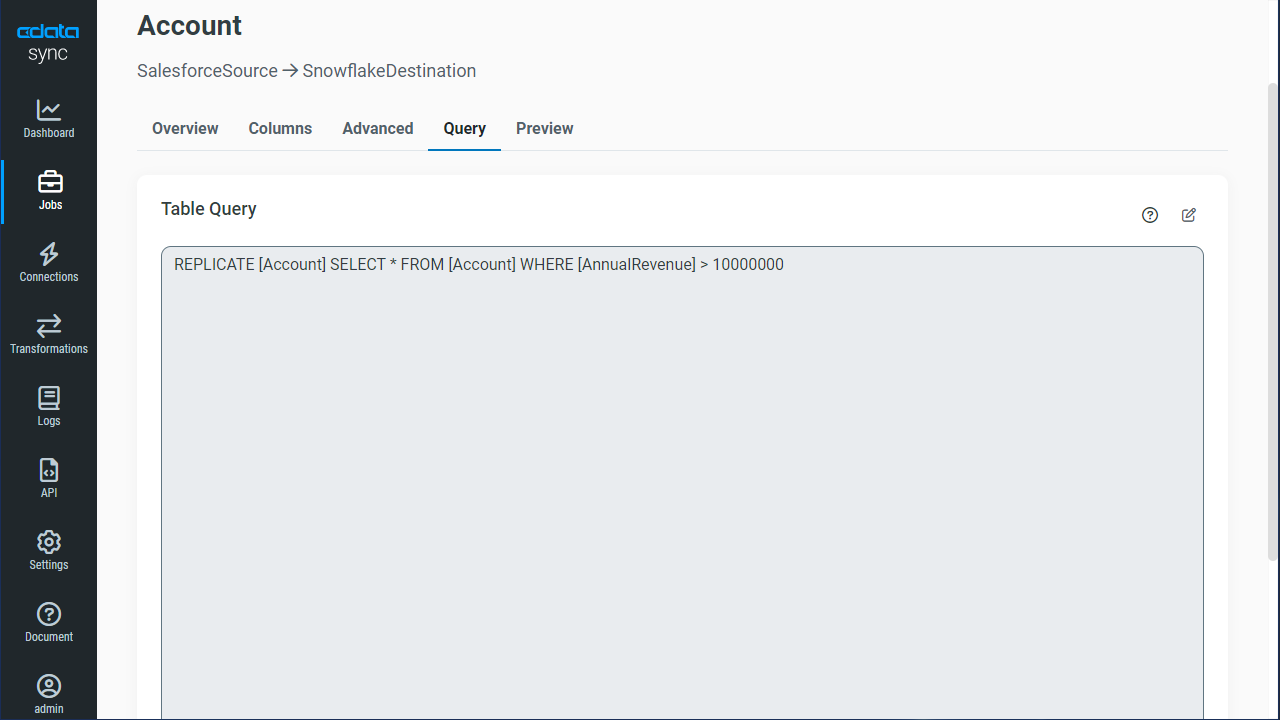
Schedule Your Replication
In the Schedule section, you can schedule a job to run automatically, configuring the job to run after specified intervals ranging from once every 10 minutes to once every month.
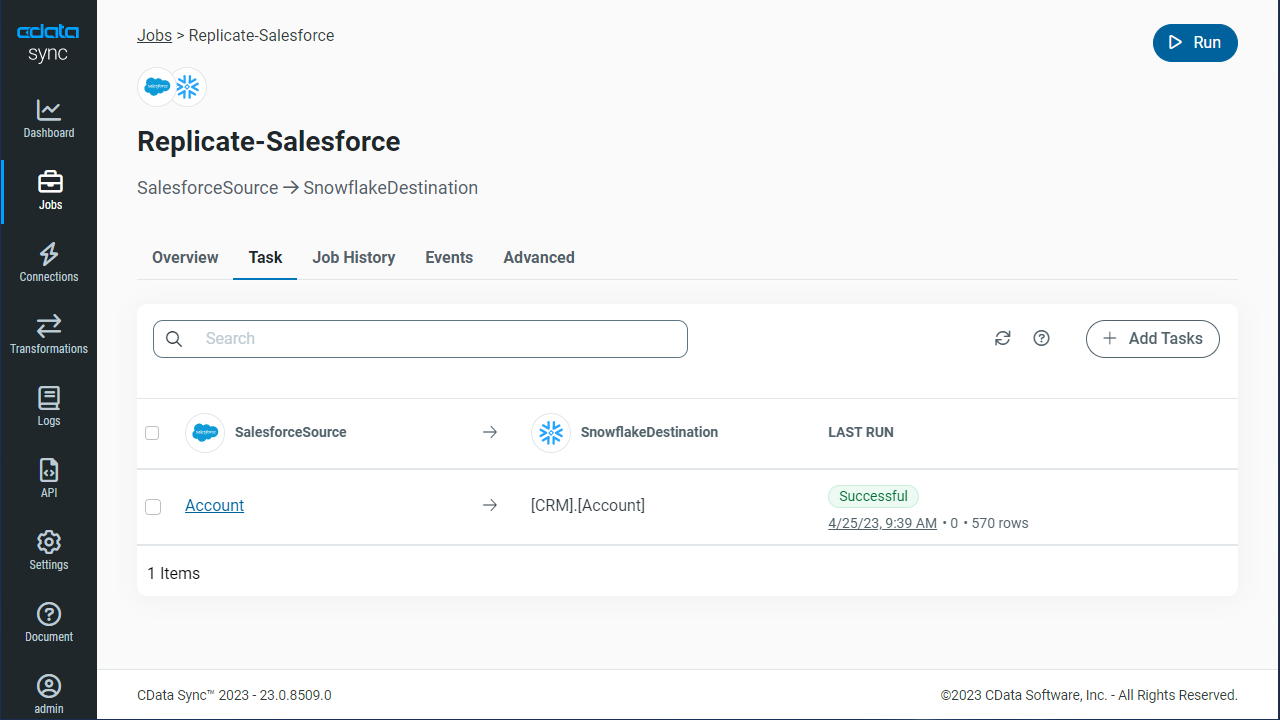
Once you have configured the replication job, click Save Changes. You can configure any number of jobs to manage the replication of your Salesforce data to Kafka.






